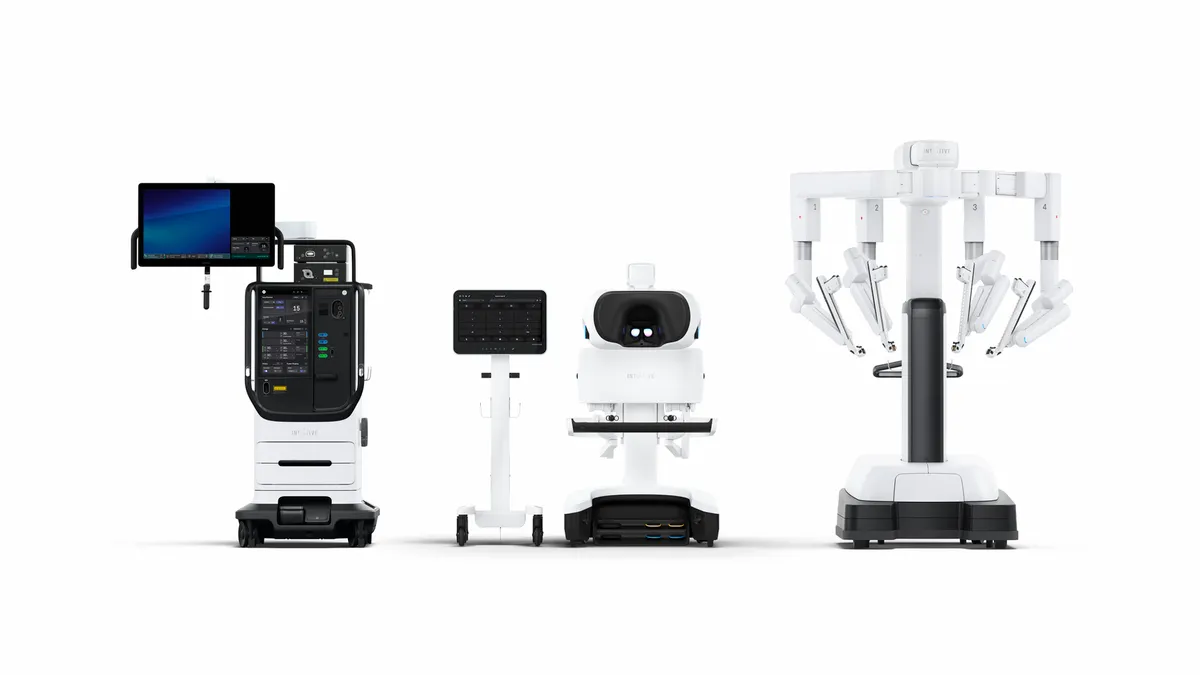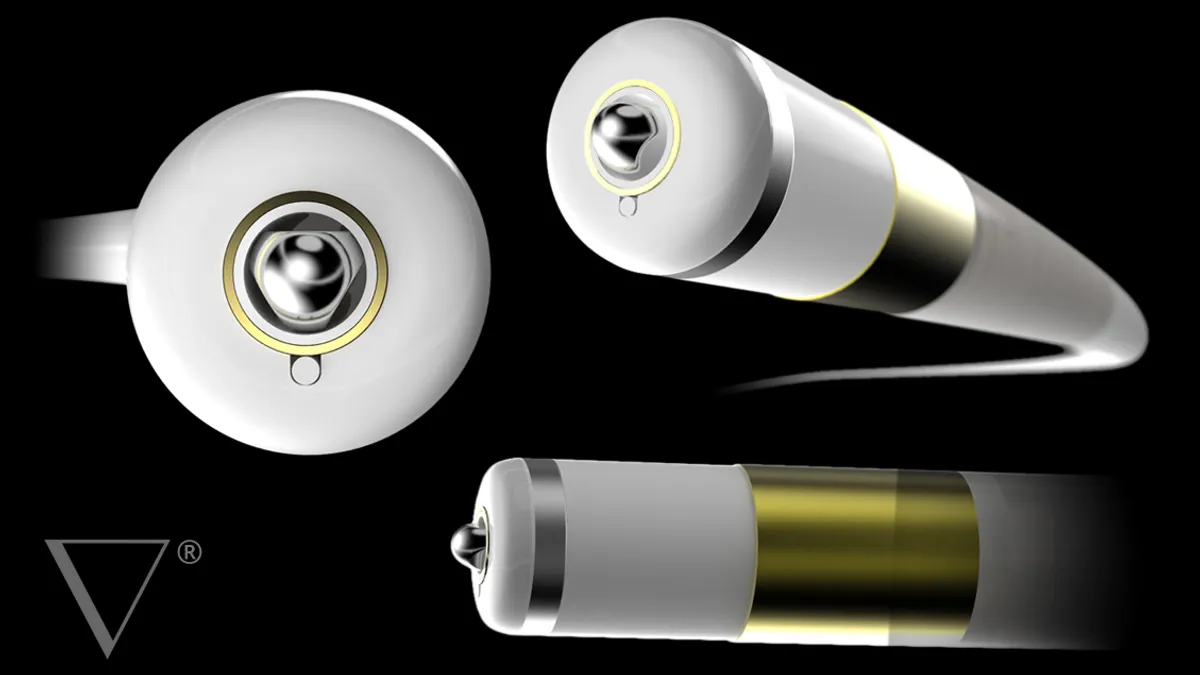The medical device industry, like so many others, suffers from a lack of representation from minorities in its C-suites. None of the largest medtechs has a CEO of color at the helm, with the executive ranks of these companies predominantly White.
It's a situation that's persisted for decades, but garnered renewed attention in 2021 on the heels of the Black Lives Matter movement and calls for racial justice for Black Americans.
AdvaMed, which represents the biggest U.S. medical device companies, contends its members want to change the composition of its senior ranks and is taking steps to rectify the situation. CEO Scott Whitaker in a recent podcast said the U.S. reached an "inflection point" last year on issues of systemic racism and structural inequality, and that AdvaMed continues to make inclusiveness and diversity a top priority.
Everett Cunningham, who is Black and CEO of GE Healthcare's $7 billion U.S. and Canada businesses, said he doesn't want to dismiss or minimize the progress being made in the industry. However, he emphasized "it's 2021 and the fact that we only have 3% of Black leaders in place in medtech shows we have a long ways to go" to address the diversity challenge.
Asked about the color of the faces across the industry's C-suites, Cunningham remarked that they don't look like him.
Whitaker contends that significant progress has been made over the last six years to address the issue. AdvaMed's data, based on a survey of roughly 120 companies, finds that since 2015, the percentage of Blacks in leadership roles has more than doubled from 1.3% to 3.2%, while Asians in senior medtech leadership roles also more than doubled from 5.2% to 11.2%.
Whitaker credited Stryker CEO Kevin Lobo, AdvaMed's board chair from 2019 to early 2021, with creating AdvaMed Advance, whose aim is to "develop, adopt and continuously evolve a measurable framework for advancing inclusion and diversity that is applicable to all medtech companies."
In February, Abiomed CEO Mike Minogue took over as board chair for a two-year term. Whitaker said Minogue, like Lobo, has made inclusion and diversity one of his top three priorities.
"We firmly believe that our industry must be as diverse as the patients we serve if we are truly going to meet the needs of all who enter the healthcare system and not just a few. It's the right thing to do. It's the moral thing to do. And as if that’s not enough of a reason, it makes good business sense as well," Whitaker added.
"It's 2021 and the fact that we only have 3% of black leaders in place in medtech shows we have a long ways to go" to address the diversity challenge.

Everett Cunningham
CEO of GE Healthcare's $7 billion U.S. and Canada businesses
As one of the most senior Black executives in the medtech industry, Cunningham said companies need to open up the candidate pools for senior-level positions to individuals from more diverse backgrounds. This "feeder pool" is critical to ensuring diversity as a recruiting source, according to Cunningham. Just as critical to that process is also having a diverse interview panel to screen candidates and help make hiring decisions, he contends.
"Every one of my leaders has a target they have to hit in terms of hiring women in leadership and underrepresented minorities. They are going to get paid or not paid based on that target," Cunningham said. "Medtech should look directionally like our customers, and we're not there yet."
Attracting diverse talent and growing those human resources are two distinct activities. Mentoring is the way to help guide the development of people of color inside medtechs and to foster their growth leading to promotions. Cunningham said GE Healthcare has made a mentor-mentee program a requirement so diverse mid-level and high-level managers can climb the corporate ladder.
"We're all accountable for this," Cunningham added. "I wouldn't be where I am unless Pfizer pharmaceutical, the company that I started with, had programs that gave me exposure to corporate America. We have to do that more consistently."
Pushing for changes in medtech
A relatively new group's mission is to increase representation of racial and ethnic minorities in medical device companies — particularly CEOs making corporate decisions impacting underserved patient populations.
MedTech Color, backed by corporate sponsors AdvaMed and medtechs such as BD, Danaher, J&J, Medtronic, ResMed and Stryker, says it wants to increase the number of executives of color at medical device companies, where minorities have been historically absent from high-level corporate decisions that directly impact underrepresented patient populations.
While Omar Ishrak, a Bangladeshi-American, served as Medtronic's CEO and board chair from 2011 to 2020, MedTech Color's ambitious goal is to see 100 Black and Brown CEOs in the medtech industry by 2030, for companies of varying sizes.
"There's a gap at the highest levels of senior executives for all ethnic minorities, with the biggest gap for African Americans." Kwame Ulmer, a founding member of MedTech Color, said, noting the lack of diversity is not just a problem in medical device companies but across the lifesciences.
Formally established in 2018, MedTech Color got its start at the 2016 AdvaMed conference where Ulmer and Michelle McMurry-Heath, then vice president for medical device regulatory affairs at Johnson & Johnson and later CEO of Biotechnology Innovation Organization, first discussed the idea of addressing the underrepresentation of medtech leaders of color.
MedTech Color has benefited from industry support. Ulmer called out J&J this year doubling its financial commitment, adding individual companies have different priorities that change from year to year.
The investments some of the major medtechs are making to promote racial equity also vary. Baxter in June announced a $1.2 million scholarship and grant program to support African-American students pursuing health and science degrees at three historically Black colleges and universities. By comparison, Edwards Lifesciences earlier this month established a $100 million Social Impact Investment Fund to expand access to capital in Black and underserved communities aimed at advancing racial equity through economic development in the U.S.
Olympus COO Nacho Abia, who serves on AdvaMed's board, calls inclusion and diversity a global problem. Born in Spain, Abia started his career with Olympus in 2001 in Barcelona, later moving to Germany and most recently the U.S. to join Olympus Corporation of the Americas where he became CEO in 2015, a position he continues to hold.
"I started living in places where I was a minority, an immigrant," including the Netherlands, Abia said during a recent AdvaMed podcast. "Wherever you go, there is bigotry and there are people who don't accept differences." He added that tolerance, respect for differences and diversity ultimately will "contribute to creating a better place to work, first, and a better world later."
Like many industries in the wake of last summer's protests of the police killings of Black Americans such as George Floyd, AdvaMed in June issued principles on health equity meant to help address "longstanding issues" of healthcare inequities.
"Disparate treatment of patients of color have deep roots that are linked to issues such as access to quality care, economic inequity, racism, conscious and unconscious bias," states AdvaMed's document, which lays out principles intended as initial steps to guide industry, including the recruitment of more diverse patients for clinical trials and medical device development.
Among MedTech Color's goals is to help drive clinical trial enrollment of patients from underrepresented ethnic groups. It's an initiative supported by the FDA.
Jeff Shuren, director of FDA's Center for Devices and Radiological Health, said in a statement the regulatory agency "is committed to advancing diverse participation in trials to ensure that clinical studies better reflect the populations that will ultimately benefit from new and innovative health solutions."
FDA liaisons from CDRH and the Office of Minority Health and Health Equity are participating in the MedTech Color Collaborative Community, a partnership to develop strategies to address the lack of diversity and inclusion in medical device product development and clinical research.
In addition to increasing clinical trial enrollment to represent diverse patient populations, MedTech Color wants to find ways to recruit and retain minority physicians, researchers and other stakeholders in studies and product development.
The medtech industry also "suffers from underfunding" of early-stage companies managed and controlled by ethnic minorities, according to Ulmer, a partner at venture capital firm Wavemaker Three-Sixty Health. To address the problem, MedTech Color this year conducted a pitch competition for early-stage startups competing for $100,000 to help minority entrepreneurs launch and scale their businesses.
"Our goal for next year is to increase that to $250,000," Ulmer said, with plans for MedTech Color to invest in 100 minority-owned startups over the next decade with as much as $10 million.
Cunningham agrees on the importance of funding these kinds of early-stage medtech companies. "People that work for startups they either end up getting acquired by bigger companies or they take their experiences and end up in bigger ponds making a bigger splash."
It's time to have the "uncomfortable" conversations in medtech, which will ultimately be good for business and society at large, Cunningham argues. Medtechs need to "stop just being aware and talking about it — we've got to do something about it."
Ulmer is hopeful that progress can continue to be made and someday soon we'll see a CEO of color at a major medical device company. "There are people knocking at the door," he said, referring to BD's Tony Ezell, who is Black and currently serves as the medtech's president of North America and chief marketing officer. "It would be an important tipping point for the industry."






















